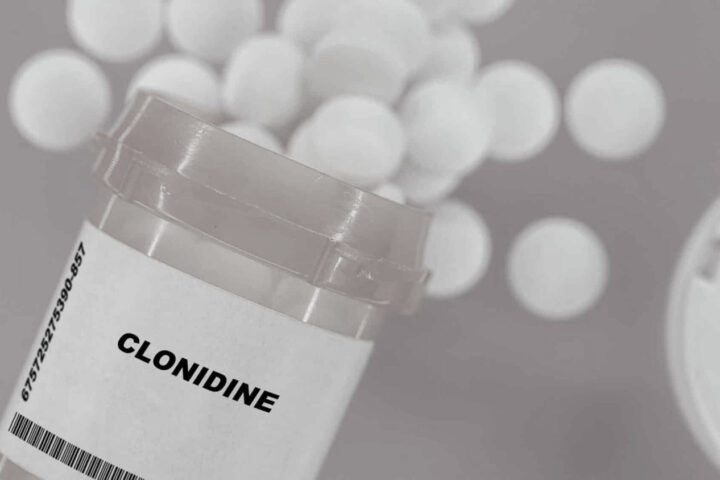The cannabis plant and its derivatives have been subjects of much confusion and debate. Terms like hemp, cannabidiol (CBD), marijuana, and tetrahydrocannabinol (THC) are often used interchangeably, but they refer to different substances with distinct properties and legal statuses. As CBD products gain popularity, understanding the differences and implications is crucial.
What is CBD?
Cannabinoids are chemical compounds found naturally in both the human body and certain plants. In humans, these compounds are known as endocannabinoids, while in plants they are called phytocannabinoids. The endocannabinoid system in our bodies affects neurotransmitters that influence pain, mood, appetite, sleep, and other functions. CBD, a common cannabinoid found in cannabis, mimics these natural compounds. Unlike THC, CBD is not psychoactive and does not produce a “high.”
A helpful analogy is to think of hemp and marijuana as lemons and oranges within the citrus family—related but different. Hemp is typically grown for non-drug use and has low THC content, while marijuana is cultivated for its psychoactive effects due to higher THC levels.
What is THC?
Tetrahydrocannabinol (THC) is the primary psychoactive compound found in the cannabis plant. It is responsible for the characteristic “high” that users experience. THC was first isolated in 1964 by Dr. Raphael Mechoulam and his team at the Hebrew University of Jerusalem. Since then, it has been the subject of extensive research due to its wide range of effects on the human body and mind.
How THC Works in the Brain
THC exerts its effects by binding to cannabinoid receptors in the brain, particularly the CB1 receptors. These receptors are part of the endocannabinoid system, which plays a crucial role in regulating various physiological processes, including mood, memory, pain sensation, and appetite.
When THC binds to CB1 receptors, it activates them, leading to the release of dopamine, a neurotransmitter associated with pleasure and reward. This interaction is responsible for the euphoric feelings and altered perceptions often reported by users. The process by which THC becomes active is known as decarboxylation. This occurs when cannabis is heated, either through smoking, vaping, or cooking, converting THCA (tetrahydrocannabinolic acid) into THC.
Effects of THC
The effects of THC can vary significantly depending on the dose, method of consumption, and individual differences among users. Common effects include:
- Euphoria: Many users report feelings of happiness and relaxation.
- Altered Perception: THC can change the way time, color, and spatial dimensions are perceived.
- Increased Appetite: Often referred to as “the munchies,” THC stimulates hunger.
- Pain Relief: THC has analgesic properties and is used to manage chronic pain.
- Relaxation: Users often feel a sense of calm and stress relief.
However, not all effects are pleasant. Some individuals may experience:
- Anxiety: In some users, particularly those new to cannabis or those consuming high doses, THC can induce anxiety and panic attacks.
- Paranoia: Feelings of paranoia and mistrust can occur, especially at higher doses.
- Psychosis: In rare cases, THC can trigger psychotic episodes, particularly in individuals predisposed to mental health disorders like schizophrenia.
- Cognitive Impairment: THC can impair short-term memory and affect cognitive functions, making it difficult to concentrate or perform complex tasks.
THC and Medical Use
Despite its potential for adverse effects, THC has significant medical applications. It is used in various forms to treat conditions such as:
- Chronic Pain: THC’s analgesic properties make it effective for managing pain from conditions like arthritis and multiple sclerosis.
- Nausea and Vomiting: THC is used to reduce nausea and vomiting in patients undergoing chemotherapy.
- Appetite Stimulation: It is beneficial for patients with conditions like HIV/AIDS or cancer that cause severe appetite loss.
- Muscle Spasticity: THC can help reduce muscle spasms in conditions such as multiple sclerosis.
Several THC-based medications have been approved for medical use, including:
- Dronabinol (Marinol): Used to treat nausea and vomiting caused by chemotherapy and to stimulate appetite in AIDS patients.
- Nabilone (Cesamet): Used for similar purposes as dronabinol.
- Sativex: A mouth spray containing THC and CBD, used to treat muscle spasticity and pain in multiple sclerosis patients.
Legal Status of THC
The legal status of THC varies globally. In some countries and states, THC is legal for both medical and recreational use, while in others, it remains strictly controlled or illegal. In the United States, for example, THC is classified as a Schedule I controlled substance at the federal level, indicating it has a high potential for abuse and no accepted medical use. However, many states have legalized its use for medical or recreational purposes.
Safety and Addiction Potential
THC is considered to have a moderate potential for addiction. Regular use can lead to tolerance, dependence, and in some cases, cannabis use disorder. Symptoms of cannabis use disorder include cravings, withdrawal symptoms, and continued use despite negative consequences.
Withdrawal symptoms from THC can include:
- Irritability: Users may feel easily agitated or annoyed.
- Sleep Difficulties: Insomnia or disturbing dreams can occur.
- Decreased Appetite: Some users may experience a reduction in appetite.
- Anxiety: Increased feelings of anxiety and restlessness.
It’s important to approach THC use with caution, especially for individuals with a history of mental health issues or those who are pregnant or breastfeeding. While THC can offer significant benefits for certain medical conditions, its psychoactive effects and potential for dependency require careful management and consideration.
How Does CBD Oil Make You Feel?
CBD oil affects individuals differently, but it commonly induces feelings of relaxation, reduced anxiety, and increased focus. It does not cause a high. Many people use CBD oil to manage chronic pain, headaches, insomnia, and inflammation. Studies suggest that CBD may suppress autonomic arousal, the nervous system response associated with increased heart rate or respiration, which could explain its calming effects.
Why is CBD Gaining Popularity Now?
The 2018 U.S. Farm Bill played a significant role in CBD’s rise to popularity by removing hemp-derived products from the Drug Enforcement Agency’s list of Schedule 1 substances. This legislative change allowed licensed growers to cultivate and sell hemp-derived products, leading to a boom in the market. However, state-level regulations still apply, and the legal landscape for CBD products remains complex.
Are CBD Products Legal?
Hemp-derived CBD products are legal at the federal level in the United States as long as they contain less than 0.3% THC. However, marijuana-derived CBD remains illegal federally and is classified as a controlled substance. The legal status of CBD products can vary by state, and it’s important to be aware of local regulations.
Where to Buy CBD
CBD oil can be purchased at various locations, including dispensaries, health food stores, gas stations, wellness boutiques, and online. Some major retailers like CVS and Walgreens have started selling CBD products in select states.
How to Take CBD
CBD can be consumed in several forms, including:
- Oils and Tinctures: Taken under the tongue or mixed into food and drinks.
- Edibles: Gummies, chocolates, and other food products infused with CBD.
- Capsules: Swallowed like a supplement.
- Topicals: Creams, lotions, and balms applied to the skin.
- Vaping: Inhaling CBD vapor through a vape pen.
Can You Fail a Drug Test After Taking CBD Oil?
It’s possible to fail a drug test if the CBD product contains more THC than advertised. To avoid this, look for products that provide a Certificate of Analysis (COA) from third-party testing labs.
Potential Side Effects
CBD is generally well-tolerated, but it can cause side effects such as dry mouth, diarrhea, reduced appetite, drowsiness, and fatigue. It can also interact with other medications, so it’s important to consult with a healthcare provider before starting CBD.
Hemp Seed Oil vs. CBD Hemp Oil
Hemp seed oil, extracted from hemp seeds, contains no CBD and is commonly used in food and skincare products. CBD hemp oil, derived from the entire hemp plant, contains CBD and has been popularized since the 2018 Farm Bill.
Safety and Regulation
The World Health Organization (WHO) has declared that CBD is generally well-tolerated with a good safety profile. However, because CBD products are largely unregulated, consumers cannot always be sure of the product’s purity or dosage. Only one CBD product, Epidiolex, has been approved by the FDA for treating epilepsy.
Proven Health Benefits
Epidiolex, a purified form of CBD oil, has been approved for treating severe forms of epilepsy. Other FDA-approved cannabis-related products include Marinol, Syndros, and Cesamet for treating nausea and weight loss associated with AIDS and chemotherapy. Emerging evidence suggests potential benefits of CBD in treating conditions like PTSD, schizophrenia, neuropathic pain, and Alzheimer’s disease, though more research is needed.
Concerns and Considerations
While CBD itself does not appear to be addictive, the lack of regulation and the potential for misleading product labeling are significant concerns. Consumers should be cautious and seek products from reputable sources. It’s also important to note that CBD should not replace evidence-based treatments for serious health conditions.
CBD oil offers a range of potential benefits, from alleviating anxiety to managing pain and improving sleep. However, due to the lack of regulation and potential side effects, it’s essential to approach its use with caution and consult healthcare professionals. For families and friends supporting loved ones in recovery in South Africa, understanding CBD can be a valuable part of navigating the complexities of addiction and health management.



